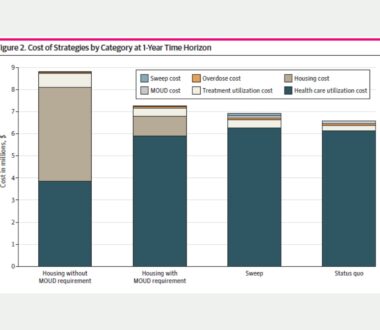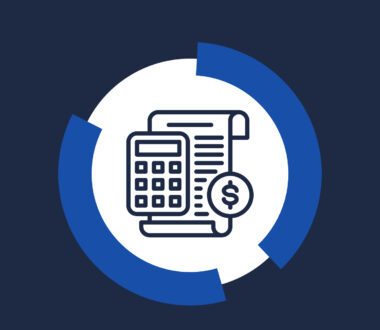
Cost-Effectiveness Analysis of Peer-delivered Services in South Africa
The fight against HIV in South Africa is complicated by alcohol and other drug use (AOD), which has been cited as a common barrier to adherence of antiretroviral therapy (ART). The economic burden of disordered alcohol use further strains the country’s public health resources through increased healthcare utilization, social welfare payments, crime, and lost productivity. […]

Improving Substance Use Treatment Access in Criminal-legal Systems through JCOIN 2.0
On September 29, 2025, the Justice Community Overdose Innovation Network (JCOIN) kicked off Phase II of its new five-year cycle that represents an estimated $33 million in research investments in 2025. Awarded by the National Institute on Drug Abuse (NIDA) as part of the NIH HEAL Initiative, the investments help establish clinical research hubs and […]

Understanding the Costs of Using Implementation Facilitation to Implement Emergency Department-Initiated Buprenorphine
Buprenorphine, when prescribed in the emergency department (ED), increases the chances for treatment engagement and retention among patients with opioid use disorder (OUD). The patient uptake and clinical administration of ED-initiated buprenorphine for OUD, however, has been slow despite evidence of its effectiveness. Implementation facilitation (IF), a strategy that leverages external facilitators and a local […]

Health and Economic Outcomes of Addressing Encampments of Individuals Using Opioids
Lead author Hana Zwick, a research data analyst at the Syndemics Lab, and colleagues published a new simulation modeling study in JAMA Network Open to understand the public health and economic outcomes of strategies that arrest, disperse, or house people who live in encampments and experience high-risk opioid use compared to the encampment status quo. […]

Cost of Implementing Substance Use Disorder Treatment Strategies for Youth in the Legal System
In a new article in the Journal of Substance Use and Addiction Treatment, lead author and CHERISH Methodology Core Director Kathryn McCollister and colleagues conducted a cost analysis of implementing evidence-based interventions to improve substance use disorder (SUD) treatment among youth in the legal system (YLS). By analyzing implementation costs, this study offers insights about […]

Health Economic Outcomes of a Minimal Monitoring Approach to Providing HCV Therapy
In a new article in Hepatology Communications, lead author and CHERISH Population Data & Modeling Core Director Benjamin Linas and colleagues report new economic analyses from MINMON, an AIDS Clinical Trial Group (ACTG 5360) study that used a minimal monitoring approach to provide treatment for chronic hepatitis C virus (HCV). Findings suggest that the simplified […]

Offering Buprenorphine in Homeless Shelters in Massachusetts Projects Life- and Cost-saving Results
Overdose is the leading cause of death among people with opioid use disorder (OUD) who are experiencing homelessness. Innovative care models that meet this population outside of office-based settings can improve access to buprenorphine, a medication for treating OUD, and avert fatal overdoses. In this study, Avik Chatterjee, lead author and addiction specialist at Boston […]

Cost-Effectiveness of Fibrosis Staging
More than 4 million people in the U.S. live with a hepatitis C virus (HCV) diagnosis. However, as of 2022, fewer than one-third of individuals infected with HCV have been cured due to barriers related to high direct-acting antiviral (DAA) pricing and the steps involved in determining someone’s degree of liver disease or fibrosis. In […]

A Cost-Effectiveness of Implementation Facilitation to Promote Emergency Department–Initiated Buprenorphine for Opioid Use Disorder
In the last eight years, emergency departments (EDs) have seen an influx of visits related to opioid use disorder (OUD). For the same reason, researchers have been citing EDs to be a critical setting and reachable moment for initiating OUD medications, the gold standard of care. Buprenorphine is advantageous as a low-barrier OUD treatment compared […]

Economic Costs and Outcomes that Matter to Patients
One of the key questions researchers ask when conducting an economic evaluation is: How much does this intervention cost to an individual, organization, or society at large? The process requires researchers to identify the perspectives of affected stakeholders and analyze the costs related to the intervention. To better understand the burdens and economic impact of […]

Informing Evidence-Based Medicine for Opioid Use Disorder Using Pharmacoeconomic Studies
Since 2021, over 100,000 individuals have died each year from a drug overdose, with approximately 76 percent of those deaths involving opioids. As the US health care system contends with this growing health crisis, improved access to evidence-based medication treatment for opioid use disorder (OUD) is imperative. Pharmacoeconomics, a branch of health economics used to evaluate comparative clinical, person-centered, and economic outcomes […]

Economic Evaluations of Establishing Opioid Overdose Prevention Centers in 12 North American Cities: A Systematic Review
In this systematic literature review published in Value in Health, CHERISH Research Affiliates Czarina Behrends and Ahmed Bayoumi, CHERISH staff members Jared Leff, Jazmine Li, and Erminia Fardone, CHERISH investigators Kathryn McCollister, Sean M. Murphy, and Bruce Schackman, and former NIDA summer intern, Weston Lowry, analyzed 16 studies that summarized and identified gaps of economic […]
Engage with CHERISH
Submit a Consultation Request or Contact Us to learn more about how CHERISH can support your research or policy goals.